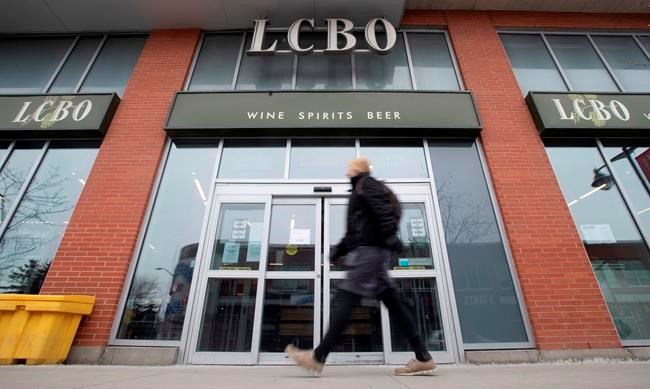Addiction experts are urging provinces to keep liquor stores open during the COVID-19 outbreak or risk exacerbating another public-health crisis.
The P.E.I. government reopened a liquor store in Charlottetown on Wednesday after shutting down all provincially run locations last week to prevent the spread of the novel coronavirus.
It's the first step in the province's plan to offer limited access to some government liquor stores in parts of the Island without private sellers, provided safety measures are put in place to maintain social distancing.
The province relaxed its restrictions to support people who are at risk of alcohol withdrawal, Minister of Transportation, Infrastructure and Energy Steven Myers said in a statement Tuesday.
Officials in provinces including Ontario, Quebec and Saskatchewan have cited similar concerns in listing liquor and cannabis stores as essential services exempt from sweeping retail shutdowns.
Quebec Premier Francois Legault told reporters Tuesday that keeping liquor stores open could help contain the "chaos" at grocery stores and convenience stores, and prevent further burdens on the health-care system.
Taryn Grieder, a neuroscientist and research associate at University of Toronto, said cutting off people who are physically dependent on alcohol can lead to severe withdrawal symptoms such as delirium, seizures and even death.
In 2018, nearly 20 per cent of Canadians over the age of 12 reported alcohol use that classified them as heavy drinkers, according to Statistics Canada.
If even a small fraction of people going through withdrawal needed treatment, it could spark a "secondary health crisis" for emergency rooms already overwhelmed with COVID-19 cases, said Grieder.
"Making liquor stores an essential service is a public-health measure the same way that closing down non-essential services is a public-health measure," said Grieder.
"(It's about) doing what's best for everyone."
Canadians are in "survival mode," Grieder said. Many people use alcohol to self-medicate, so if they can't drink, some people may turn to other drugs.
There's also the risk that the psychological side-effects of withdrawal could cause a spike in suicides or contribute to an increase in domestic violence, Grieder said.
This is all the more worrisome given that many of the programs available to people with alcohol use disorder have been impacted by the outbreak, said Leslie Buckley, chief of addictions at the Centre for Addiction and Mental Health.
Buckley said Alcoholics Anonymous has suspended many in-person meetings in Canada, and some residential addiction treatment centres have shut down to curb the spread of the virus. However, she noted that many initiatives have found ways to offer support online or by telephone.
Clinical psychologist Dominique Morisano said people who are dependant on alcohol also face an increased risk of contracting the virus, because substance use can suppress the immune system.
The University of Toronto adjunct professor said some symptoms of early withdrawal, such as fever and muscle aches, overlap with COVID-19, so it's vital that this population not fall through the cracks when it comes to screening.
Videos of lineups snaking outside liquor stores have fuelled online debate about why some provinces have allowed the sale of intoxicating substances to continue while other businesses are shuttered.
Stephen Hoption Cann of the University of British Columbia's school of population and public health acknowledged this congestion could facilitate the spread of contagion, but some prohibitive measures pose their own risks.
Hoption Cann said cutting hours and reducing operations could feed into the climate of uncertainty that will crowd liquor stores with panic shoppers.
However, he applauded some provinces for finding ways to minimize contact while serving customers, such as Newfoundland and Labrador, which has closed its stores but is still filling orders by phone and online.
The distinctions between essential and non-essential services aren't always cut and dry in the throes of a pandemic, Hoption Cann admitted.
"Obviously, it's not something we've gone through before," he said. "So (these will be) hard decisions to make."
This report by The Canadian Press was first published on March 25, 2020.
Adina Bresge, The Canadian Press



